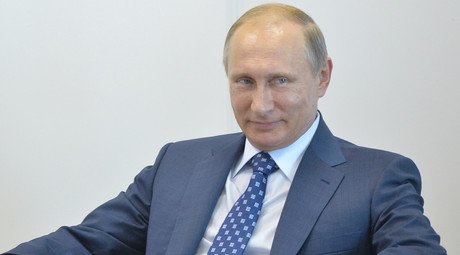‘Ironically, US sanctions are helping the Russian budget’ – ex-Central Bank official to RT

The latest round of US penalties targeting Russian businesses paradoxically helps the country's budget instead of harming it, said Konstantin Korischenko, former deputy chairman of the Central Bank of Russia (CBR).
Talking to RT, he pointed to the rebounding Russian currency which weakened initially after the announcement of penalties. “This trend for strengthening will continue, mainly because Russia currently has a balance of payments surplus,” Korischenko said, explaining that “this is largely due to rising oil prices.”
He expressed confidence that the sanctions, along with the growing oil price and the rebounding ruble, could strengthen the Russian budget.
Moscow-traded stocks & ruble rebounded on Tuesday after suffering their worst session in 4 yrs https://t.co/bPq2h6w7nM
— RT (@RT_com) April 11, 2018
“We haven’t seen such a price for oil even before the crisis of 2014… Speaking ironically, the Americans only help the Russian budget with their sanctions.”
According to the official, speculation about possible sanctions against Russian sovereign debt has calmed down after US Treasury Secretary Steven Mnuchin voiced his opposition. Mnuchin said it could have a destabilizing effect on global markets.
“All this means that the increased profitability, which has now been formed by the Russian sovereign debt, will attract the most aggressive investors. And this will also entail the inflow of capital and the strengthening of the ruble.”
The possibility of the Russian Central Bank’s interventions is very low as the regulator adheres to its position of floating exchange rates, Korischenko said.
“So far there is no reason to believe that it will renounce it.”
.@LSEplc stops trade of Russian firm whose owner is on US sanctions list https://t.co/X9A78LU0ti
— RT UK (@RTUKnews) April 10, 2018
When asked about the long-term consequences of sanctions, he said that people would have to wait and see how the sanctioned Russian companies modified their businesses.
Korischenko also stressed the importance for all the Russian companies to revise their business models as any of them could one day be in the same perilous position as RUSAL.
The Russian aluminum giant bore the biggest brunt of the latest US penalties. RUSAL's stock dropped 50 percent after trading of the company's shares was suspended on major international exchanges in line with Washington's sanctions.
“Therefore, generally speaking, the Russian state and economy should gradually rebuild their model, diversifying towards other partners who are not inclined to such harsh actions,” he said.
For more stories on economy & finance visit RT's business section















